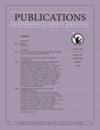基于自抗扰的大型天线伺服系统双环控制设计
IF 7.7
3区 物理与天体物理
Q2 ASTRONOMY & ASTROPHYSICS
Publications of the Astronomical Society of the Pacific
Pub Date : 2023-11-01
DOI:10.1088/1538-3873/acff86
引用次数: 0
摘要
摘要射电天文观测对射电望远镜天线的跟踪指向精度提出了严格的要求。大口径射电望远镜天线的高惯性、低刚度、欠阻尼、多谐振频率等特点给高精度控制带来了困难。仅使用传统的PID控制器很难满足控制性能。本文设计了一种基于低阶自抗扰的大型天线双环控制器,并在格林班克望远镜模型上进行了测试。首先,为天线速度环路设计了一阶低通滤波器和陷波滤波器级联的一阶线性自抗扰控制器(LADRC),实现了双目标最优速度跟踪;其次,设计位置环控制器,结合PD控制器和低通滤波器实现天线的位置跟踪控制。进一步优化位置环控制器有助于提高系统的动态性能。仿真结果表明,所提出的PD-LADRC控制器的响应曲线比基于定量反馈理论(QFT)的控制器平滑;PD-LADRC系统的沉降时间为10.1 s,比QFT系统的沉降时间缩短了约8.2 s。而使用更好的位置控制器将沉降时间减少到5秒。PD-LADRC系统还具有较好的抗风扰动能力;与基于qft的控制器相比,齿轮箱处的最坏干扰响应减少了68.3%,圆盘处的最坏干扰响应减少了60%,恢复时间减少了15 s以上。此外,所提出的PD-LADRC除了易于参数整定外,对系统参数扰动具有较好的鲁棒性,并且在位置跟踪中跟踪误差均方根较小。本文章由计算机程序翻译,如有差异,请以英文原文为准。
Active Disturbance Rejection-based Double-loop Control Design for Large Antenna's Servo System
Abstract Radio astronomical observations put stringent requirements on the tracking and pointing accuracy of radio telescope antennas. High inertia, low stiffness, underdamped, and multi-resonant frequencies of a large aperture radio telescope’s antenna make the high-accuracy control difficult. It is not easy to satisfy control performance using only conventional PID controllers. A low-order Active Disturbance Rejection-based double-loop controller for large antenna is designed in this paper and tested on the Green Bank Telescope model. First, the first-order Linear Active Disturbance Rejecting Controller (LADRC) cascading a first-order low-pass filter and a notch filter is designed for the antenna’s velocity loop to achieve the dual-objective optimal velocity tracking. Second, the position loop controller is designed to realize the antenna’s position-tracking control by combining the PD controller and a low-pass filter. Further optimization of the position-loop controller helps improve the dynamic performance of the system. The simulation results indicate that the response curves of the proposed PD-LADRC control are smother than those of the Quantitative Feedback Theory (QFT) based controller; the settling time of the PD-LADRC system is 10.1 s and reduces by about 8.2 s than that of the QFT. While using a better position controller reduces settling time to 5 s. The PD-LADRC system also has better wind-disturbance rejection; the worst disturbance response reduces at the gearbox by 68.3% and 60% at the dish, and the recovery time reduces by more than 15 s than the QFT-based controller. In addition, besides easier parameter tuning, the proposed PD-LADRC has better robustness to systematic parameter perturbations and minor tracking error rms in position tracking.
求助全文
通过发布文献求助,成功后即可免费获取论文全文。
去求助
来源期刊
CiteScore
6.70
自引率
5.70%
发文量
103
审稿时长
4-8 weeks
期刊介绍:
The Publications of the Astronomical Society of the Pacific (PASP), the technical journal of the Astronomical Society of the Pacific (ASP), has been published regularly since 1889, and is an integral part of the ASP''s mission to advance the science of astronomy and disseminate astronomical information. The journal provides an outlet for astronomical results of a scientific nature and serves to keep readers in touch with current astronomical research. It contains refereed research and instrumentation articles, invited and contributed reviews, tutorials, and dissertation summaries.

 求助内容:
求助内容: 应助结果提醒方式:
应助结果提醒方式:


